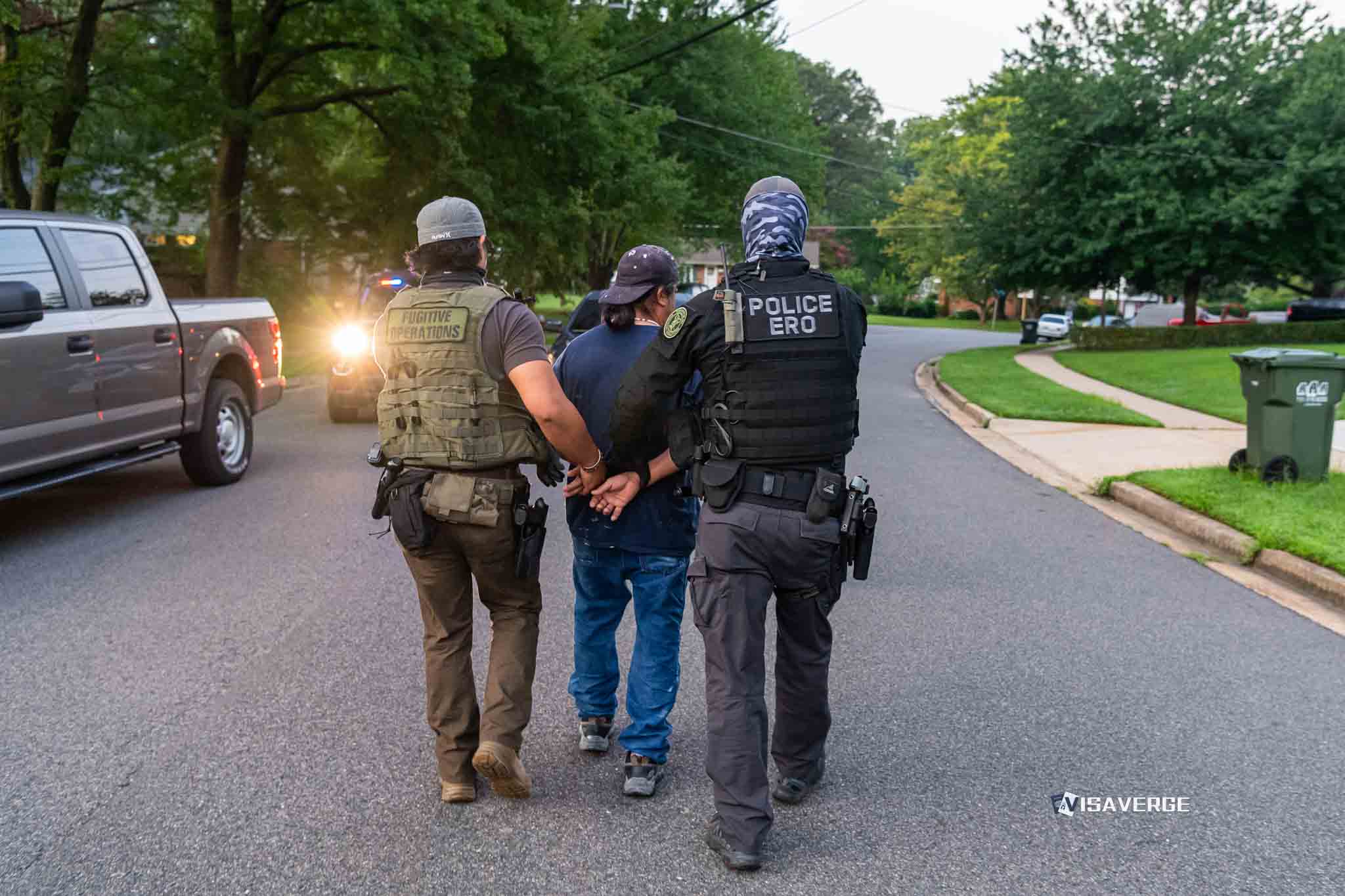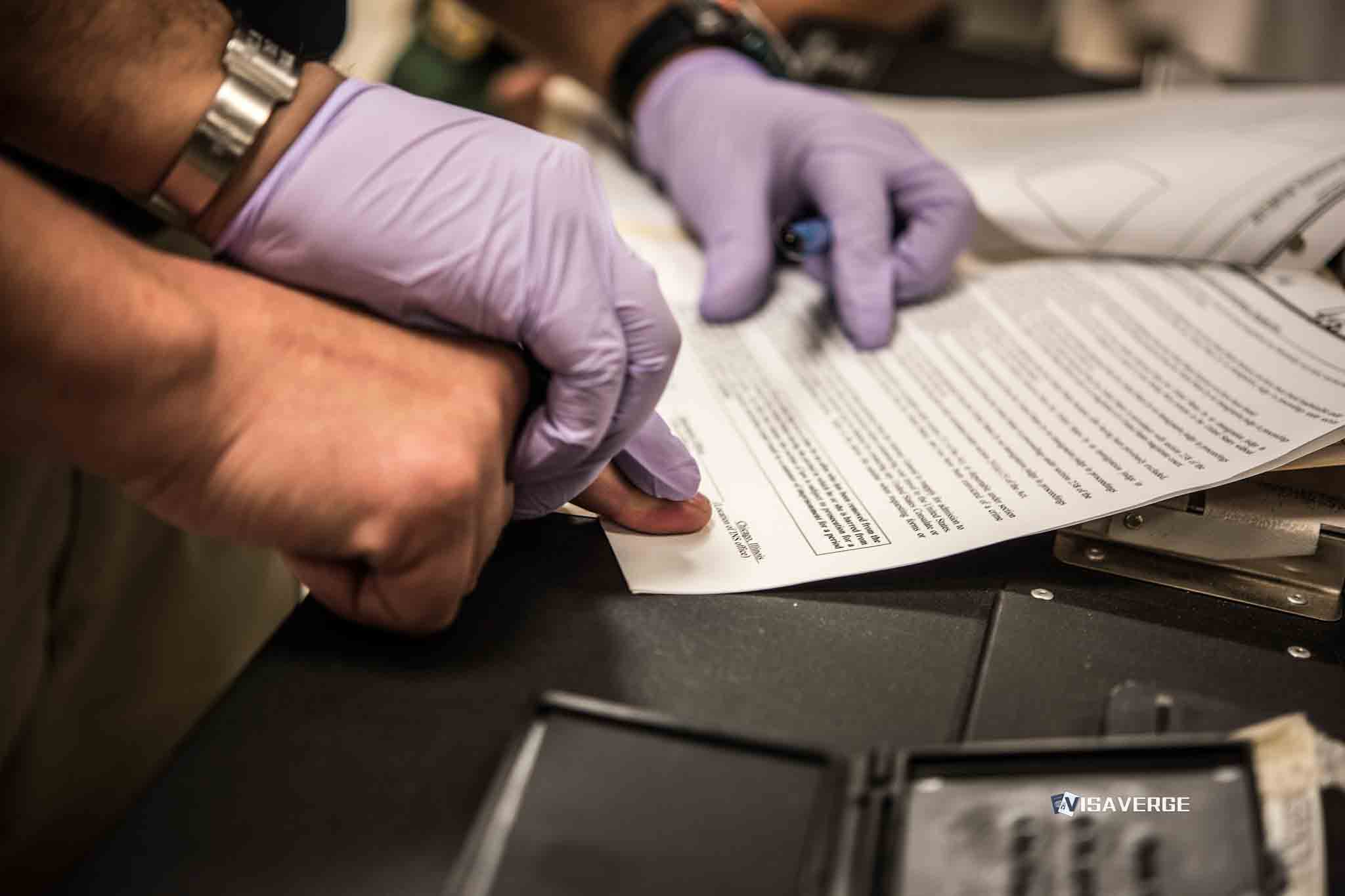(WHEELER COUNTY, TEXAS) Texas authorities turned over 31 commercial vehicle drivers to Immigration and Customs Enforcement (ICE) after a one-day sting along Interstate 40 in Wheeler County, Texas on November 11, 2025, in one of the most sweeping single-day checks of truckers’ immigration status reported in the area.
The operation, which state officials described as a joint state and federal effort, focused on commercial trucks moving along I-40, a key east–west freight route that cuts through the Texas Panhandle. Officers from the Texas Department of Public Safety (DPS) Commercial Vehicle Enforcement (CVE) unit carried out 105 commercial vehicle inspections over the course of the day, then referred nearly one in three of the drivers they stopped to federal immigration authorities.

According to details released by state officials, DPS officers were not able to verify the lawful presence of 31 drivers, even though those drivers presented commercial driver licenses, or CDLs. All 31 were handed over to Immigration and Customs Enforcement (ICE), which then determined that each of them was in the United States illegally.
The sting drew a swift and pointed response from Governor Greg Abbott, who framed the operation as both a road safety measure and a response to illegal immigration.
“Millions of Texans drive on our highways, roads, and streets every day. When illegal immigrants break the law and illegally drive on our roads, they endanger the lives of countless Texans and Americans. This joint state and federal operation along one of the nation’s longest transcontinental highways removed illegal drivers and unsafe vehicles from Texas roads. While liberal states like California issue licenses to illegal immigrants and risk the lives of Americans, Texas will work with our federal partners to maintain safe roads and apprehend illegal immigrants to protect our communities,” said Governor Abbott.
The operation brought together four agencies: the Texas Department of Public Safety, Immigration and Customs Enforcement (ICE), Homeland Security Investigations, and the Federal Motor Carrier Safety Administration. DPS Commercial Vehicle Enforcement officers led the roadside inspections on Interstate 40 in Wheeler County, Texas, while federal agents were responsible for checking immigration status and handling the drivers who were taken into custody.
Officials said the enforcement push was aimed specifically at commercial vehicles, not passenger cars or private drivers. The checks focused on whether truck drivers were legally allowed to be in the United States and whether the commercial driver licenses they carried were valid and properly issued. In these 31 cases, investigators later said that while the drivers had CDLs, those documents did not correspond to lawful presence in the country.
One detail that stood out to Texas officials was where the licenses came from. A majority of the CDLs held by the 31 drivers were issued out of California, and none were issued in Texas. State officials highlighted that pattern as they argued against policies in states that allow undocumented immigrants to obtain commercial licenses. The operation placed particular emphasis on reviewing licenses that originated in states that permit undocumented immigrants to receive CDLs, with California singled out in both official briefings and political comments.
Governor Abbott’s statement made clear that he sees a direct link between those state licensing policies and what happened on Interstate 40. By saying, “While liberal states like California issue licenses to illegal immigrants and risk the lives of Americans,” Abbott drew a sharp contrast between Texas and states that, in his view, make it easier for people without lawful status to drive heavy commercial vehicles on U.S. roads. He went on to say that “Texas will work with our federal partners to maintain safe roads and apprehend illegal immigrants to protect our communities,” tying immigration enforcement to everyday concerns about road safety.
No individual names of the 31 drivers have been released, and there are no public reports from the operation that include first-hand accounts or quotes from the drivers themselves. Authorities have also not provided country-of-origin details or the types of cargo the trucks were hauling when they were stopped in Wheeler County, Texas. What has been made clear is that Immigration and Customs Enforcement (ICE) concluded, after the referrals from DPS, that each of the 31 men and women taken into custody lacked legal status in the United States.
The November 11 sting fits into what officials describe as a broader pattern of stepped-up checks on commercial drivers along major highways. Texas authorities said the Interstate 40 sweep was part of a larger push along major interstate corridors to find commercial drivers who are in the country illegally or whose paperwork does not match federal requirements. The focus on long-haul trucking routes reflects concern that those drivers can travel quickly across state lines, carrying cargo through multiple states in a single trip.
Officials and advocates on different sides of the immigration debate have long argued about whether license rules in one state affect safety in another. In this case, Texas officials pointed repeatedly to the fact that none of the detained drivers carried Texas-issued CDLs, while a majority used licenses from California, a state that allows undocumented immigrants to obtain commercial driving privileges. Authorities in Wheeler County, Texas framed that detail as an example of how policies made hundreds of miles away can influence who is behind the wheel on Texas roads.
The Wheeler County sting is not the only recent action of its kind. Officials noted that a similar operation took place in Oklahoma, where law enforcement detained 34 commercial drivers who were in the country illegally during a 15-hour sting. In that case, the CDLs presented by the detained drivers had been issued by multiple states, including California, Florida, and Texas. Together, these actions suggest a growing focus by state and federal agencies on commercial drivers’ immigration status, not only their driving records or vehicle safety.
For drivers working the long haul routes that cross Interstate 40 and other interstates, such coordinated checks can lead to rapid and lasting consequences. A roadside inspection that starts as a routine review of logbooks, weight limits, or brake systems can quickly turn into an immigration status check if officers suspect that documents are not in order. When DPS officers say they cannot verify lawful presence, as they did for 31 drivers in Wheeler County, Texas, the next step is often an immediate handover to federal authorities.
Verify that your CDL’s issuing state matches your legal status; if paperwork seems inconsistent, pause highway moves and contact the DMV and an immigration attorney to resolve before you drive.
Immigration and Customs Enforcement (ICE) then becomes the central player in what happens next. Once drivers are referred by DPS or other state agencies, ICE officers and Homeland Security Investigations agents review their records, determine whether they have any pending immigration cases, and decide whether to begin removal proceedings. More information about ICE’s enforcement roles and procedures is available on the agency’s official website.
In Wheeler County, Texas, the involvement of the Federal Motor Carrier Safety Administration added another layer to the operation. While DPS focused on inspections and ICE on immigration status, the federal motor carrier agency’s role includes oversight of commercial trucking safety standards, from driver qualifications to vehicle maintenance. In this sting, state officials said the joint action
“removed illegal drivers and unsafe vehicles from Texas roads,”
tying together both immigration status and highway safety in their description of the day’s results.
The scale of the Interstate 40 enforcement on November 11, 2025—105 commercial vehicle inspections and 31 drivers turned over to Immigration and Customs Enforcement (ICE) in a single day—gives a glimpse into how quickly such operations can sweep through a major freight corridor. For trucking companies, freight brokers, and drivers, it sends a clear signal that immigration status checks are now a central part of some highway enforcement actions, not just occasional side issues.
The Wheeler County sting also reflects Governor Greg Abbott’s broader political stance. Public statements from his office stress that he “has been vocal in his criticism of states issuing licenses to undocumented immigrants and in his support for strict enforcement actions.” His response to the Interstate 40 operation fits that pattern, presenting the sting as both a public safety move and a rejection of other states’ licensing policies.
As trucks continue to roll through Wheeler County, Texas and along the long, flat stretches of Interstate 40, the questions raised by the November 11 operation are likely to echo far beyond a single day’s numbers. For the 31 commercial drivers now in federal custody, the consequences unfold inside the immigration system. For Texas officials, the sting is being held up as proof that closer cooperation between DPS, Immigration and Customs Enforcement (ICE), Homeland Security Investigations, and the Federal Motor Carrier Safety Administration can reshape who is allowed to drive heavy trucks on the state’s roads. And for other states watching from a distance, the events on I-40 in Wheeler County, Texas underscore how disputes over immigrant driver licensing can quickly move from legislative chambers to the shoulder of a highway.
Texas DPS CVE conducted 105 commercial inspections on Interstate 40 in Wheeler County on November 11, 2025, referring 31 drivers to ICE after officers could not verify lawful presence despite CDLs. Federal partners including ICE, Homeland Security Investigations and FMCSA participated. Officials noted most contested licenses were issued in California and none in Texas. Governor Greg Abbott described the operation as both a road-safety measure and enforcement against undocumented drivers operating commercial vehicles.













